Top College Basketball Programs in Danger of Missing the 2024 NCAA Tournament
Top College Basketball Programs in Danger of Missing the 2024 NCAA Tournament
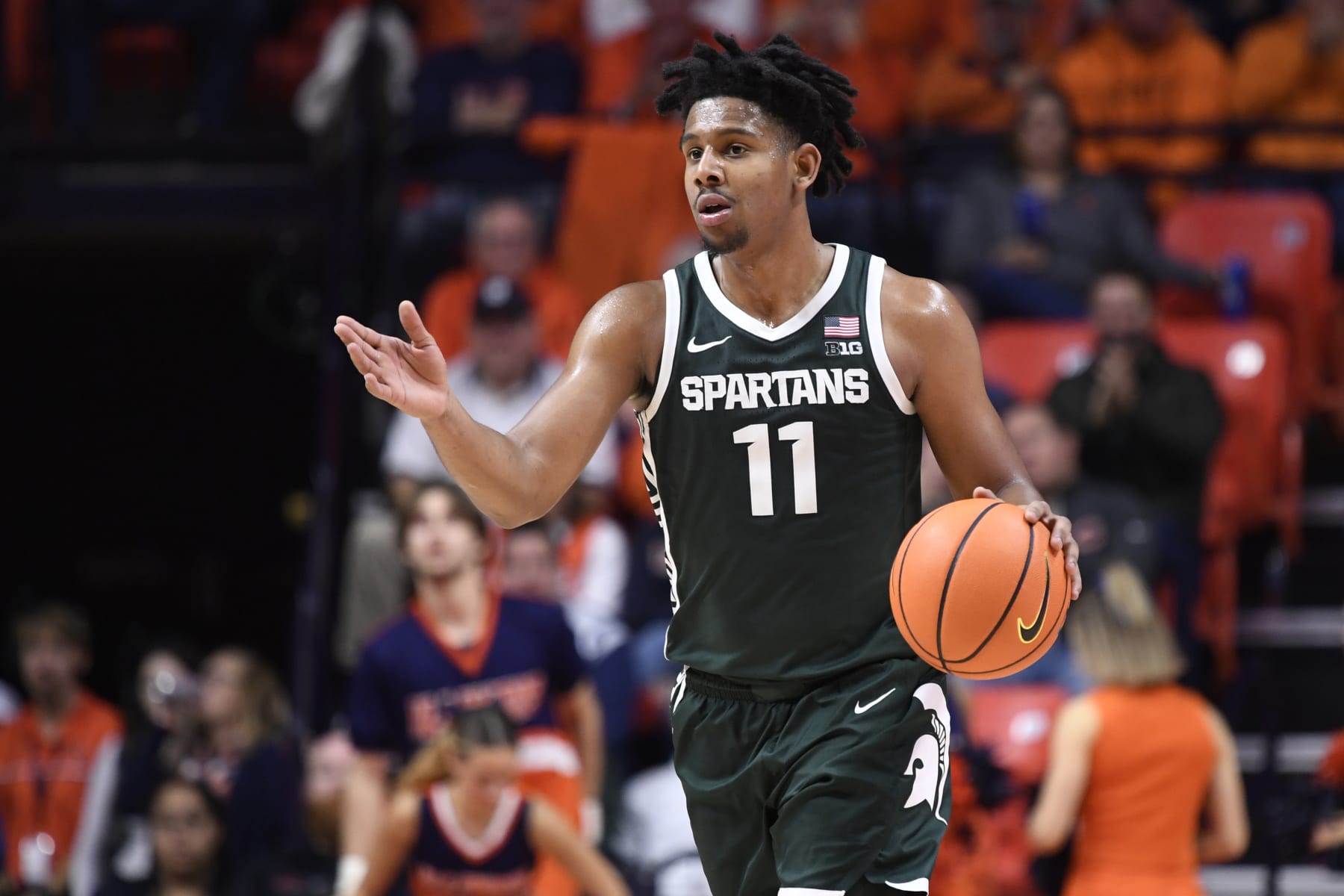
The Kansas Jayhawks have competed in 33 consecutive men's NCAA tournaments, and they may well be a No. 1 seed when they extend that streak to 34 two months from now. Not only is that the longest active tournament streak, but it is also the longest in tournament history.
However, the second- and third-longest active streaks are very much in danger of coming to an end this spring, as neither Michigan State nor Gonzaga belongs in the projected field in its current state.
Those are the two biggest top programs in danger of missing the dance.
But using our annual "top programs" definition of any team that either A) appeared in the preseason AP Top 25 (indicating they were supposed to be good this season) or B) appeared in at least six of the past eight NCAA tournaments (indicating that we kind of expect to see them in the bracket every year), there sure are a lot of top programs not exactly at the top of their game.
In total, there are 16 "top programs" either narrowly on the right side of the consensus projected bubble (in the field, but no better than a No. 10 seed on Bracket Matrix) or out of the projected field altogether. And, in several cases, with no realistic hope of climbing back into the at-large conversation, barring a complete 180 from how they've played through the first 10 weeks.
We'll disregard a few that technically qualified for the list because of the "six of eight tournaments" qualifier but weren't expected to be nationally relevant this season. However, let's discuss the 10 big ones, what went wrong and what it would take to still secure a bid to the NCAA tournament.
Arkansas Razorbacks
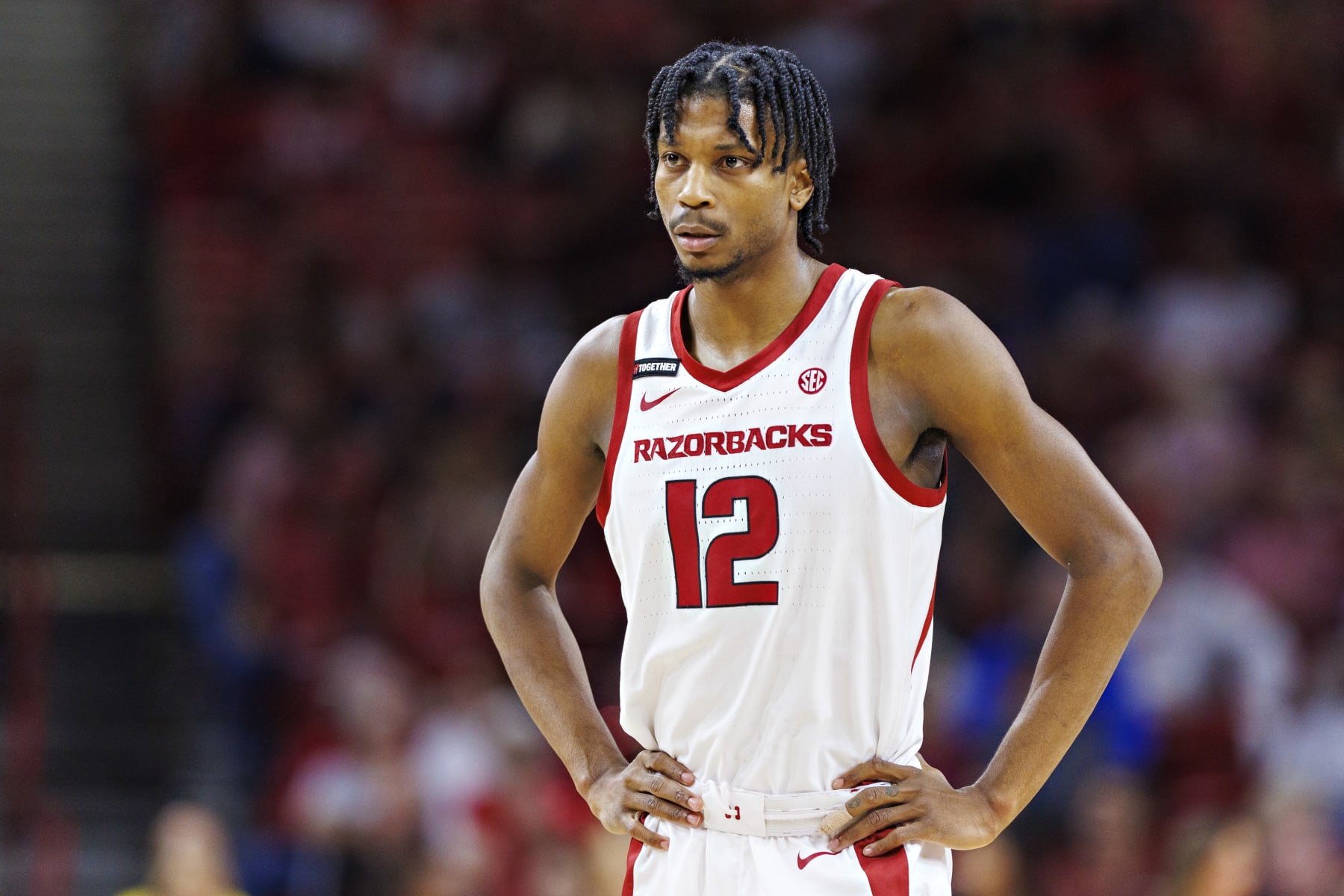
Resume: 10-7, NET: 113, RES: 87.5, QUAL: 93.0
Three Best Wins: Duke, Texas A&M, Stanford (in Bahamas)
Three Worst Losses: UNC Greensboro, at Georgia, Memphis (in Bahamas)
Current Bracket Matrix Projection: Out
If Arkansas can claw its way back into the at-large conversation, it does have the ol' trump card the selection committee loves to see: A win over Duke.
NC State had no business making the NCAA tournament last year, but a blowout home win over Duke apparently made up for everything else that was wrong with that resume. 'Twas a similar story for 2018-19 Syracuse. And Arkansas' five-point, late-November win over Duke at Bud Walton Arena has held up nicely with the Blue Devils climbing back up toward a No. 3 seed over the past six weeks.
Got to at least get onto the bubble first, though, and opening SEC play with an embarrassing 32-point home loss to Auburn and a never-led, 10-point loss at Georgia certainly didn't help.
And just so we're clear, the Razorbacks' third-best win over Stanford was a Quad 3 game, meaning prior to eking out a home win over Texas A&M on Tuesday, that victory over Duke was all they had done through the first 16 games of the season.
Throw in the home loss to UNC Greensboro and this simply isn't a case where getting to 9-9 in SEC play will cut the mustard.
How exactly they get to their final conference record would play a factor, of course. For instance, sweeping Kentucky would be all sorts of huge. But half of their remaining games aren't even going to sniff Q1, and only a few of them (at Alabama and vs. Tennessee in addition to the two Kentucky games) are legitimate needle-moving opportunities.
If they don't get to at least 11-7 in SEC play, it's very unlikely Arkansas—which opened the season at No. 14 in the AP poll after three consecutive trips to the second weekend of the NCAA tournament—will be dancing.
Gonzaga Bulldogs
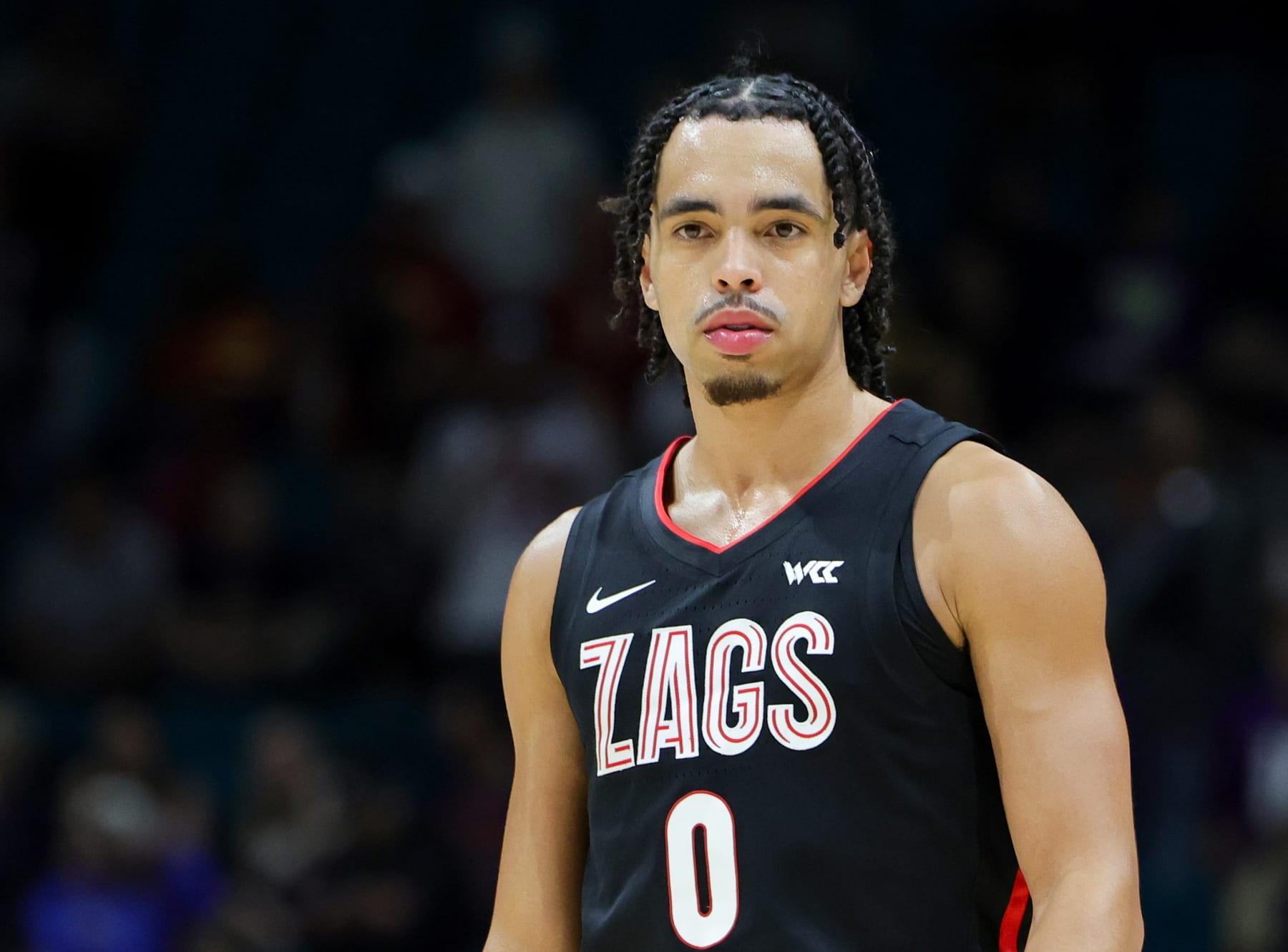
Resume: 11-5, NET: 50, RES: 80.5, QUAL: 29.5
Three Best Wins: Syracuse (in Maui), USC (in Las Vegas), UCLA (in Maui)
Three Worst Losses: at Santa Clara, at Washington, vs. San Diego State
Current Bracket Matrix Projection: No. 11 Seed
The predictive metrics still believe in Gonzaga, painting the Zags as a top-30 team that should not only make the tournament but also at least win its first-round game, too.
However, there is no real case for Gonzaga as an at-large team right now.
Even before Thursday night's loss to Santa Clara, I was on the fence about the Zags being worthy of a bid. They were 47th on my overall seed list that afternoon. I may well have scrubbed them out of the field were they not the WCC's projected auto bid, and therefore immune from too much bubble scrutiny.
They still are our projected WCC representative, though, since we use the predictive metrics instead of conference record in making those determinations. But they are already just about in "auto bid or bust" territory.
Gonzaga has five remaining games worth anything close to a darn: two against Saint Mary's, two against San Francisco and the gigantic road game against Kentucky on Feb. 10.
If the Bulldogs can win at Rupp Arena, it would be positively massive. That'd be a hang-your-hat-on-it, never-mind-the-loss-to-Santa-Clara type of win.
If we pencil it in for a loss, though, Gonzaga is going to enter Leap Day at 0-5 against Quadrant 1, needing to end the season with either a road sweep of San Francisco and Saint Mary's or a WCC tournament title in order to make the dance.
Miami Hurricanes
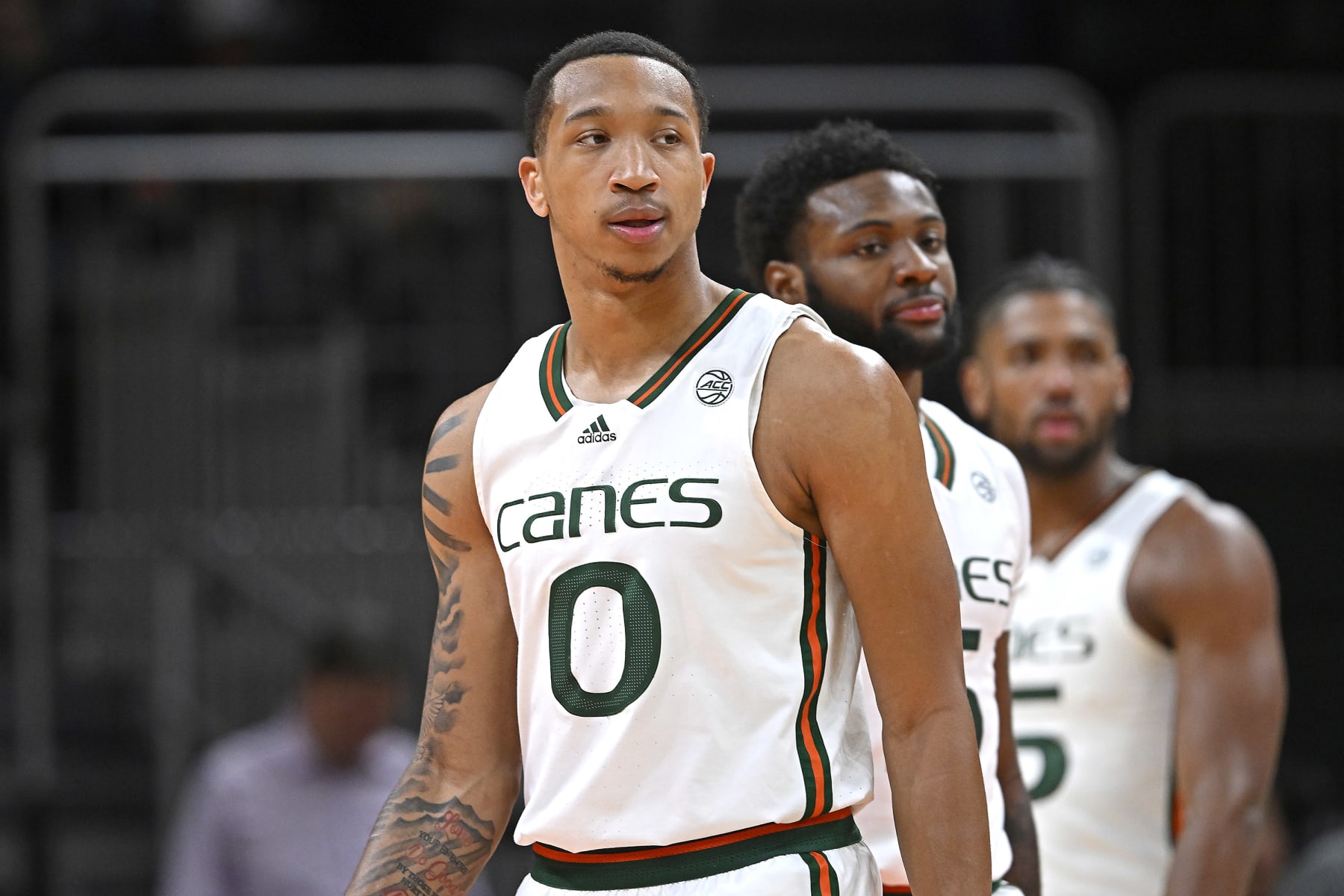
Resume: 12-4, NET: 58, RES: 48.0, QUAL: 48.5
Three Best Wins: Clemson, at Virginia Tech, Kansas State (in Bahamas)
Three Worst Losses: Louisville, Colorado (in Brooklyn), at Wake Forest
Current Bracket Matrix Projection: No. 11 seed
Even before the resume-crippling home loss to lowly Louisville last Wednesday, the Hurricanes' case for a tournament bid was Mia-mehhh.
The win over Clemson looked great at the time, but almost immediately began to lose value as the Tigers sank like a lead balloon. And while those neutral wins over bubble-y Kansas State and Georgia are nice for head-to-head comparisons purposes, they just aren't the type of top-tier wins that help separate the 'Canes from the crowd.
Taken collectively, the three wins (plus Saturday's win at Virginia Tech) are good, but not any better than what, say, Oregon, Virginia Tech or Butler has accomplished—and those teams have gotten their wins without any losses anywhere close to Miami's misstep against Louisville.
Then there's the eye test, where we remember that Miami completely no-showed in those losses to Kentucky and Colorado. Yes, that factors into their mediocre NET and QUAL metrics, but those are just dreadful showings that immediately spring to mind any time you're trying to debate how tournament-worthy this team actually is.
The key for the next month is going to be picking up more bubble-y wins. The Hurricanes do play North Carolina (twice) and Duke (once) later down the road, but they've got road games against Syracuse, NC State and Virginia in the next few weeks, as well as home games against Pitt and Virginia Tech. Probably need to win at least three of the five, but they're all virtual coin flips.
Michigan Wolverines
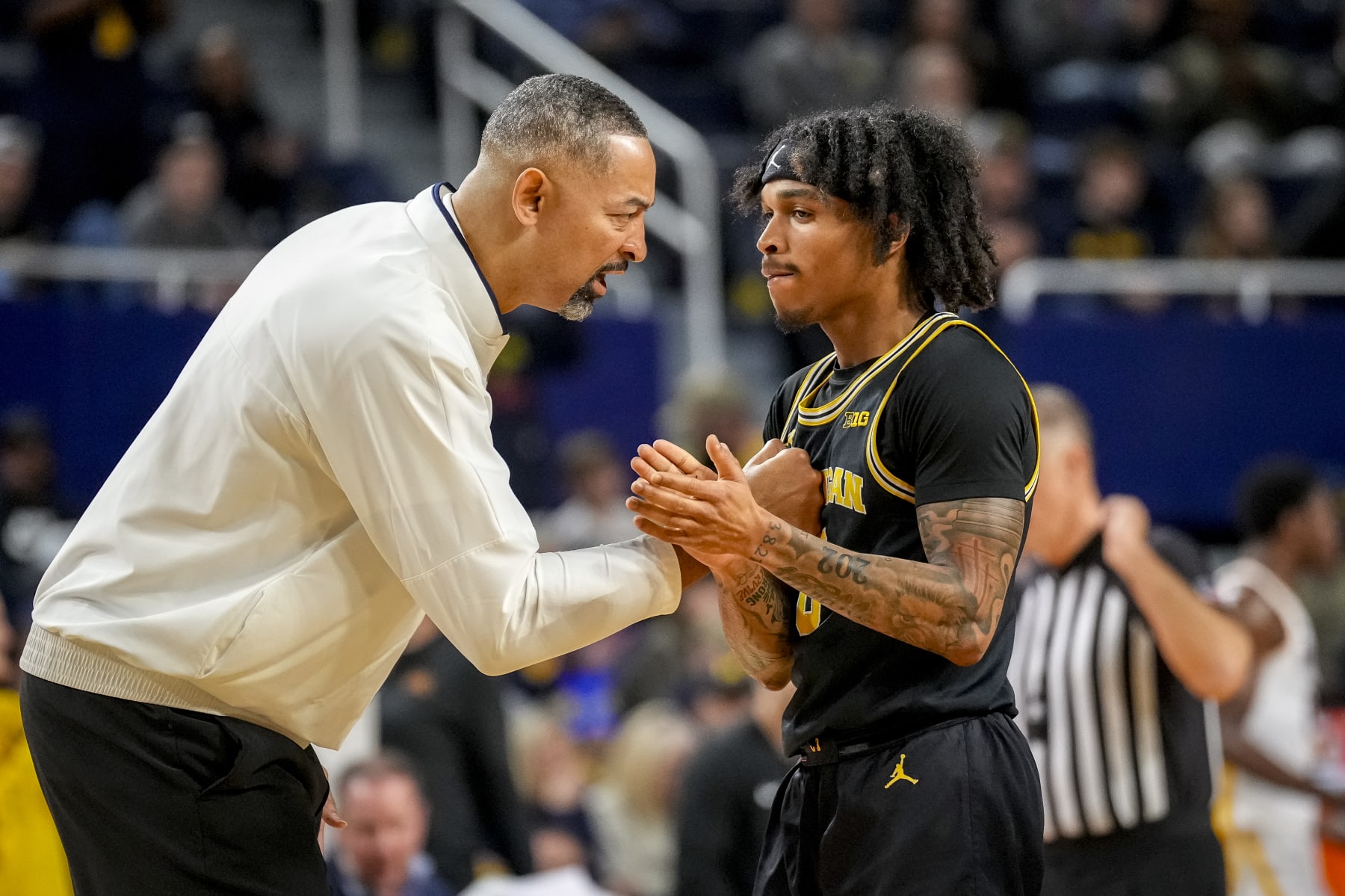
Resume: 7-10, NET: 86, RES: 120.0, QUAL: 75.0
Three Best Wins: at St. John's, at Iowa, vs. Ohio State
Three Worst Losses: vs. Long Beach State, vs. McNeese State, at Penn State
Current Bracket Matrix Projection: Not even close
Let's at least begin this Michigan discussion by acknowledging that—unlike Michigan State and Gonzaga, who were supposed to title contenders—not much was expected from the Wolverines. After losing Hunter Dickinson to the transfer portal, losing Kobe Bufkin and Jett Howard to the NBA and missing out on adding Caleb Love because of an academics issue, they were 11th in the preseason Big Ten media poll, not expected to make the NCAA tournament.
They really should be a tournament team, though.
They blew out St. John's at the Garden a week into the season. They have two other solid wins away from home against Iowa and Stanford. And in the majority* of their losses, they led at some point in the second half.
They've simply been laughably outplayed and outcoached late in games and a disaster on defense.
Throw in the bizarre "Juwan Howard let Phil Martelli coach the game at Penn State" and "Dug McDaniel suspended for six road games" factors and the whole thing has just devolved into a clown show, with Howard very much on the hot seat less than three years removed from helping guide the Wolverines to a No. 1 seed in the 2021 NCAA tournament.
*In eventual losses, Michigan held a:
- 80-76 lead over LBSU with 4:00 remaining
- 73-71 lead at Oregon with 0:20 remaining
- 59-53 lead over Indiana with 8:50 remaining
- 57-48 lead over Florida with 14:20 remaining, plus leads in both overtime and double overtime
- 47-40 lead over Minnesota with 15:00 remaining
- 37-27 halftime lead at Penn State
- 35-23 lead at Maryland with 19:10 remaining
Michigan State Spartans
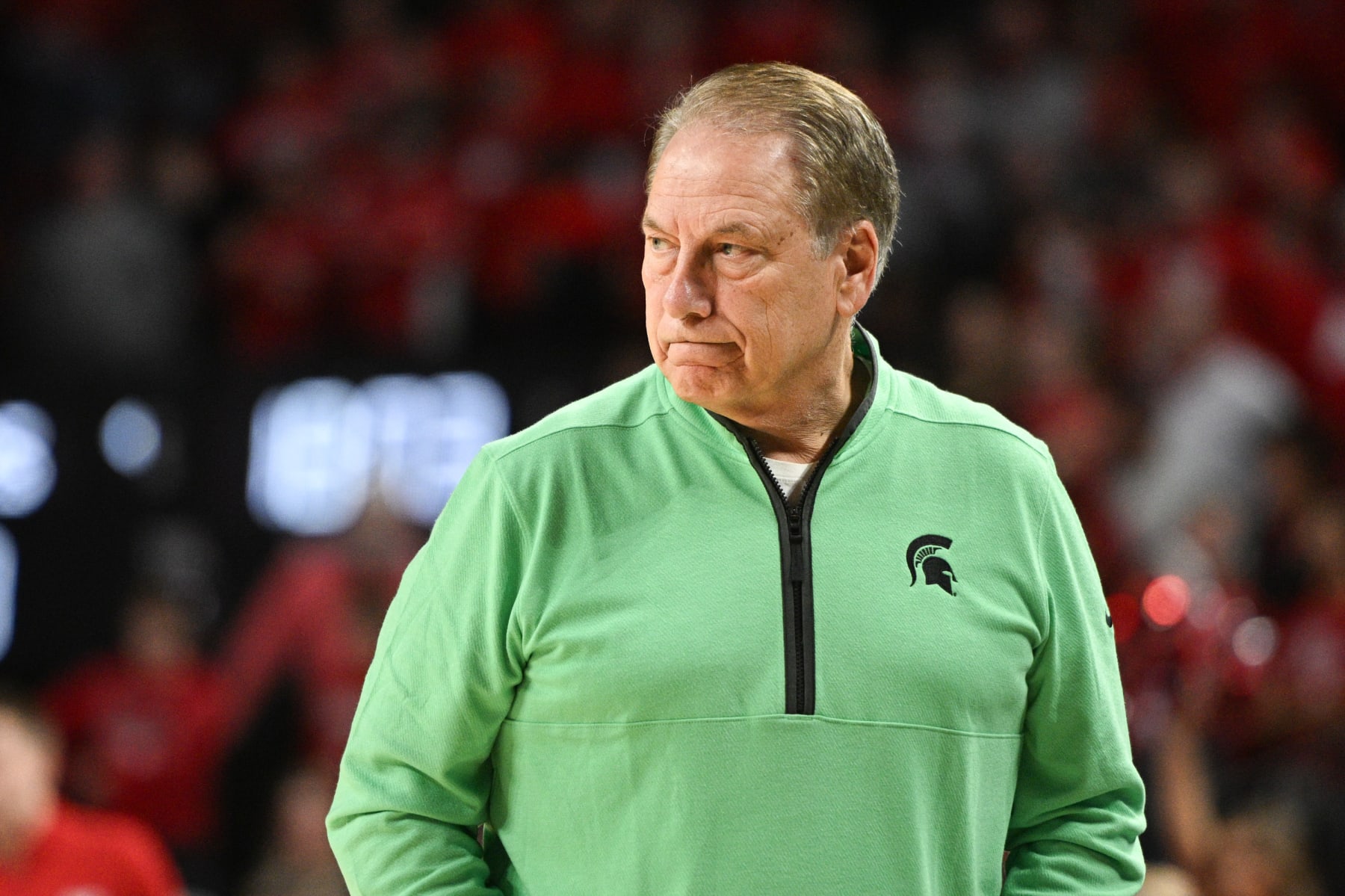
Resume: 10-7, NET: 22, RES: 63.0, QUAL: 16.5
Three Best Wins: Baylor (in Detroit), Butler, Indiana State
Three Worst Losses: James Madison, at Northwestern, at Nebraska
Current Bracket Matrix Projection: No. 10 Seed
Last year's version of this article ran on January 12, with preseason AP Top 10 Creighton prominently on the list, sitting at 9-8 with a NET of 26, a RES ranking of 62.5 and a QUAL ranking of 17.7.
And on the morning of the 12th of this January, Michigan State was in an eerily similar spot (9-7, NET: 26, RES: 68.0, QUAL: 17.0).
There was one massive difference between current Michigan State and yesteryear's Creighton, though: The Bluejays were without star big man Ryan Kalkbrenner for three of those losses, and he tried to play through his illness in another one of those Ls.
Even though the computers were painting Creighton as not a tournament team in mid-January, we kind of discounted those losses and assumed they would be better moving forward, which they were, going 12-4 the rest of the way with several strong wins and no remotely bad losses en route to landing a No. 6 seed.
Michigan State doesn't have that excuse.
In the primary eight-man rotation, the only player to miss any time was Tyson Walker sitting out the blowout victory over Alcorn State. The Spartans have otherwise been at full strength, with the exception of reserve freshman point guard Jeremy Fears missing the past five games while recovering from a gunshot wound.
Michigan State simply has not lived up to the hype, save for that unexpected 24-point blowout of Baylor in Detroit in mid-December. That's the Spartans' only marquee win, sitting at 3-7 against the top two Quadrants and sub-.500 overall if we take out the four Q4 home games.
And until the Big Ten tournament, they're probably only going to get three more Q1 opportunities: at Wisconsin (Jan. 26), vs. Illinois (Feb. 10) and at Purdue (March 2). Even if they were to go undefeated outside of losing those three games to finish at 21-10, that's probably not going to be enough, between what would be a 2-9 Q1 record and only one quality win away from home—which, again, was in Detroit against Baylor, so it sure as heck wasn't a road game.
One last note before we move on: Since NET became the primary sorting metric for the 2019 NCAA tournament, the worst average resume metrics ranking to receive an at-large bid was Rutgers in 2022. Those Scarlet Knights finished at 57.5 and were somewhat controversially the third-to-last team in, despite five exceptional wins against the top half of Q1. And last year, preseason No. 1 North Carolina (which even finished at 49.0 in the resume metrics), missed the dance with its 1-9 Q1 record.
Saint Mary's Gaels
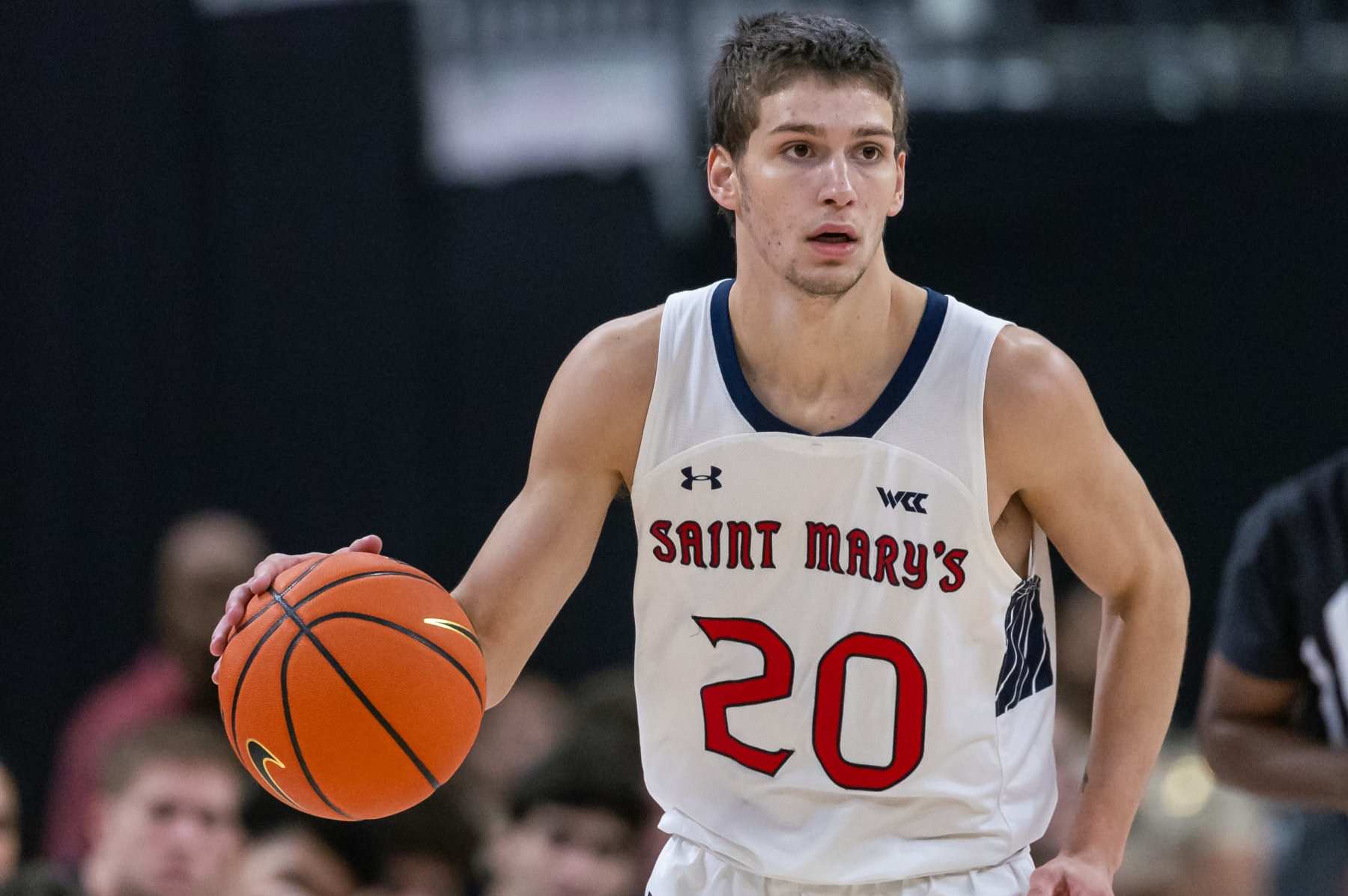
Resume: 13-6, NET: 31, RES: 76.0, QUAL: 33.0
Three Best Wins: at Colorado State, New Mexico, at Santa Clara
Three Worst Losses: vs. Missouri State, vs. Weber State, at Boise State
Current Bracket Matrix Projection: Second Team Out
The good news for the Gaels is that they've played quite well since Dec. 2. They did pick up their worst loss of the season two days before Christmas, but that's their lone blemish during a stretch of 10 wins in 11 games, which includes the marquee win at Colorado State.
The bad news for the Gaels is that the season began on Nov. 6, they dug themselves into a very deep hole in those first four weeks and Gonzaga is having one of its worst seasons in decades, meaning even the best possible win in WCC play wouldn't be all that big.
As is the case with Gonzaga, the predictive metrics are still OK with Saint Mary's. But the resume metrics—the much more important ones in the process of selecting the field—are all the way out on the Gaels. Even that big road win over the Rams was undone and then some by the bad home losses to Missouri State and Weber State.
The Gaels play at San Francisco this coming Saturday and at Gonzaga two weeks after that. Winning at least one of those games is non-negotiable if they want to creep back into the at-large conversation. And a loss at any point to the bottom five teams in the WCC would just about officially bury Saint Mary's.
Texas Longhorns
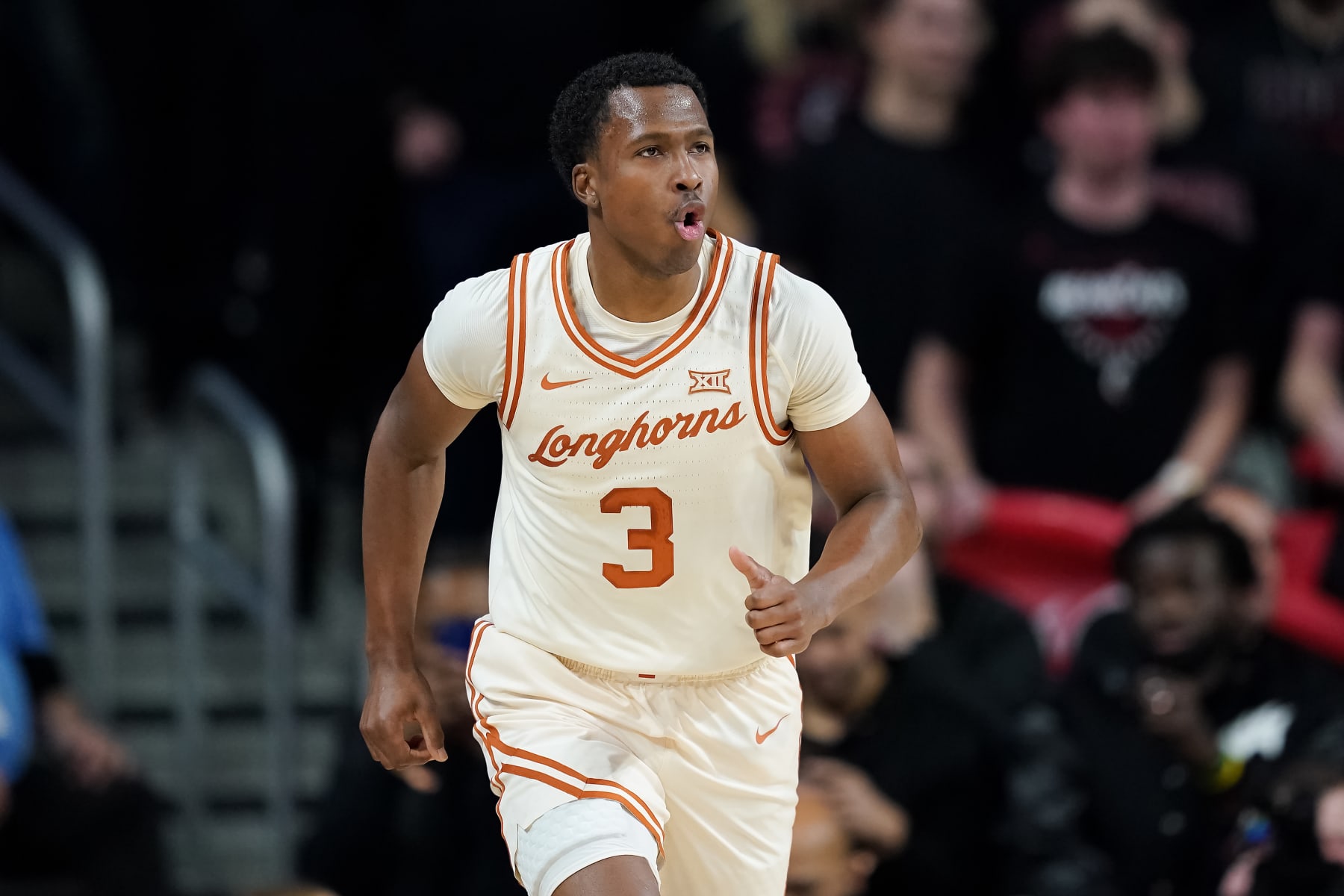
Resume: 12-4, NET: 59, RES: 64.5, QUAL: 37.5
Three Best Wins: at Cincinnati, LSU (in Houston), UNC Greensboro
Three Worst Losses: at West Virginia, Texas Tech, at Marquette
Current Bracket Matrix Projection: Fifth Team Out
Of the particularly big-named programs on this list, Texas' tournament resume is the least problematic. The Longhorns didn't suffer any terrible losses—the WVU loss wasn't great, but not terrible—only have four total losses, already have solidly-on-the-bubble metrics and will have all of the opportunity to add quality wins for the next two months in Big 12 play.
Still, they aren't exactly sitting pretty, with just the one quality win at Cincinnati—which wouldn't even look like a quality win if the Bearcats hadn't won at BYU a few days before that.
Moreover, they needed Max Abmas' last-second heroics against both Cincinnati and Louisville, in what were incredibly two of just three Texas games decided by single digits.
If either of those shots doesn't fall, Texas either doesn't have a great win or does have a terrible loss. In either scenario, the Longhorns wouldn't be within a stone's throw of the field today.
And that Big 12 schedule presents quite the double-edged sword.
Two games each against Houston, Baylor and Oklahoma plus road games against Kansas, BYU, TCU and Texas Tech is great news for a team in need of quality wins...provided it doesn't become a blueprint for an excessive number of "good losses," as was the case for Texas in 2018-19.
Five of those 10 games will be played consecutively from Jan. 20 through Feb. 3. So let's see where the Longhorns stand 18 days from now.
UCLA Bruins
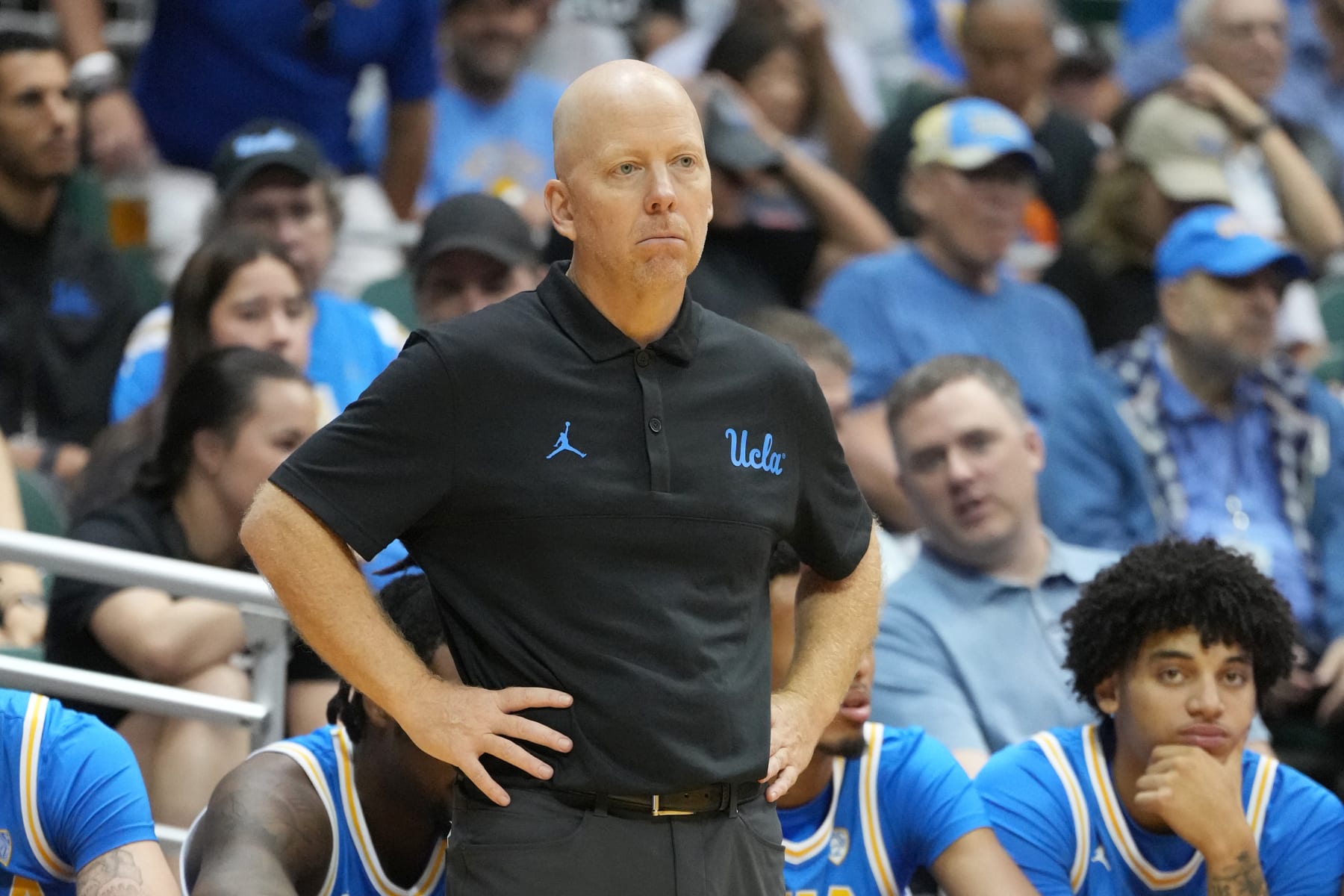
Resume: 7-10, NET: 173, RES: 189.0, QUAL: 123.0
Three Best Wins: Washington, at Oregon State, UC Riverside
Three Worst Losses: Cal St. Northridge, California, Stanford
Current Bracket Matrix Projection: Not a chance
Do you realize how awful UCLA has to be that the Bruins have supplanted both Louisville and Michigan atop the list of teams getting routinely dunked on—both on the court and on social media?
There is so much ongoing narrative right now about how Mick Cronin shot himself in the foot by banking so heavily on freshmen, in particular the four from Europe.
But UCLA actually looked pretty good in November!
The Bruins were 5-2 with four blowout victories—granted, against nobodies, but at least they showed up for those games—and competitive losses in Maui to Marquette and Gonzaga. And if you're terrible because your freshmen aren't as good as you thought they would be, shouldn't you be extra terrible in November, when team chemistry is at its weakest point and when you haven't yet figured out who should and shouldn't be on the floor?
With UCLA, though, it wasn't until early December that it all went to hell, suddenly unable to make anything and looking like a bunch of guys who have never played together before.
The 90-44 loss at Utah Thursday night opened the floodgates to all of the ridicule, but folks, that wasn't even one of the four most embarrassing losses the Bruins have suffered this season.
There is no world in which this team gets an at-large bid. And if UCLA lost by 46 at Utah, Saturday's game at Arizona could be a blowout of biblical proportions.
USC Trojans
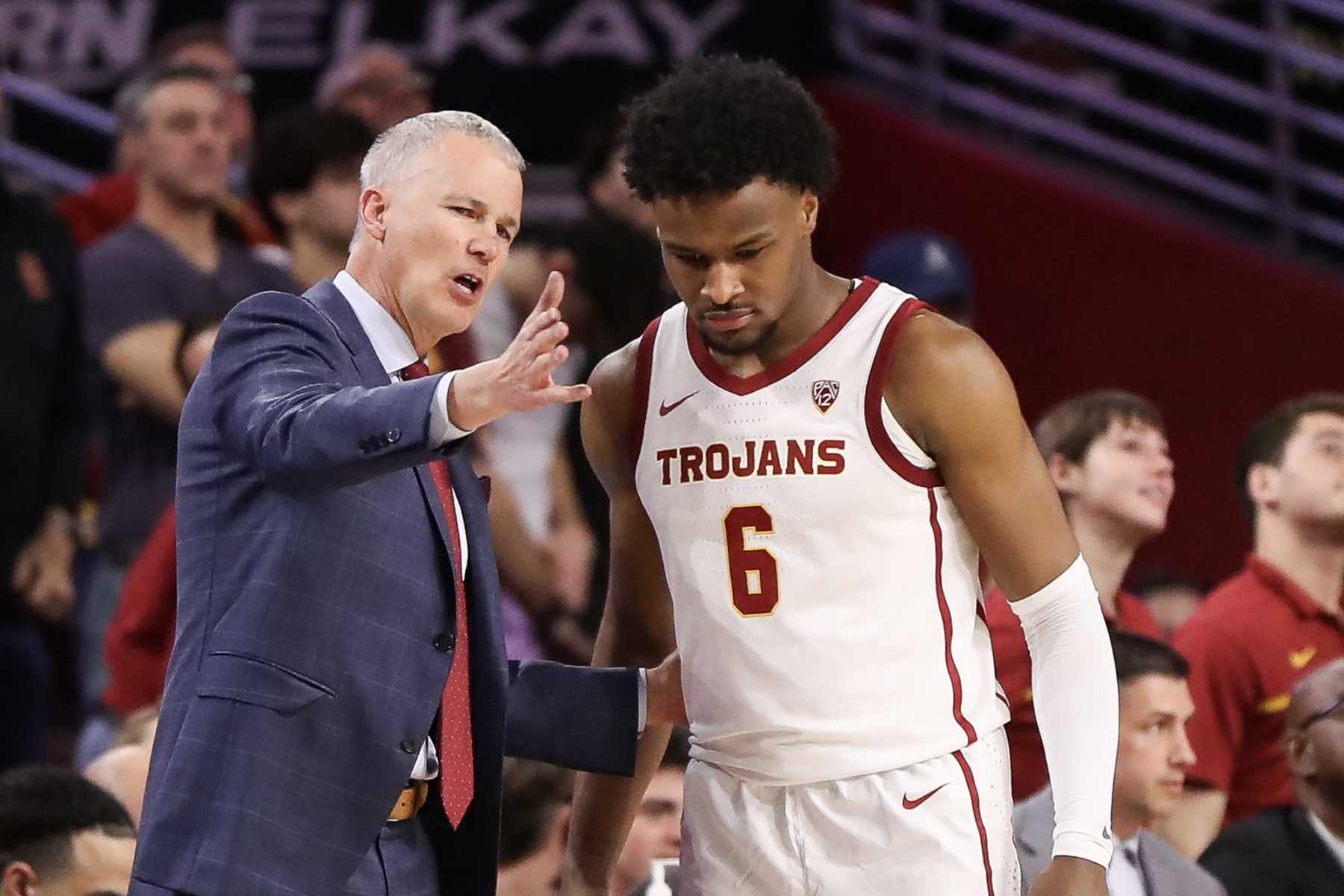
Resume: 8-9, NET: 87, RES: 117.0, QUAL: 70.0
Three Best Wins: Kansas State (in Las Vegas), Seton Hall (in San Diego), Stanford
Three Worst Losses: vs. Long Beach State, at Oregon State, vs. UC Irvine
Current Bracket Matrix Projection: Not a chance
Listen, shoutout to Andy Enfield for even getting USC to a point where there are expectations in men's basketball.
This program has not been to a Final Four since 1954 and had appeared in the Top 10 of the AP poll just once (final three weeks of 1991-92 season) in the nearly four decades before Enfield took the job. But the Trojans competed in five of the past seven NCAA tournaments (and likely would've made it in 2020), made an Elite Eight three years ago, brought in one of the best recruiting classes in the nation and opened this season at No. 21 in the AP poll.
Things very much have not gone according to plan, though.
Surely you are aware of Bronny James' medical emergency over the summer, which kept "Prince James" from making his debut until USC's ninth game. He still hasn't made nearly the impact that was expected.
Now, the Trojans are going to be without potential No. 1 draft pick Isaiah Collier for most of the remainder of the season because of a hand injury suffered in last Wednesday night's loss to Washington State.
They also didn't have Kobe Johnson for two games and lost two without Boogie Ellis.
It has just been an unfortunate mess in which they've never felt complete, and won't any time soon.
But if by some miracle they can turn a corner without Collier and avoid any further bad losses...
If Bronny breaks out in the second half of the year...
If they get Collier back a couple of weeks before the season finale against Arizona, and happen to win that game against what is currently a borderline No. 1 seed...
Maybe there's still a chance here.
We're talking seriously slim odds, though.
Might as well just pull a 2021 Oregon State and win the Pac-12 tournament instead.
Virginia Cavaliers
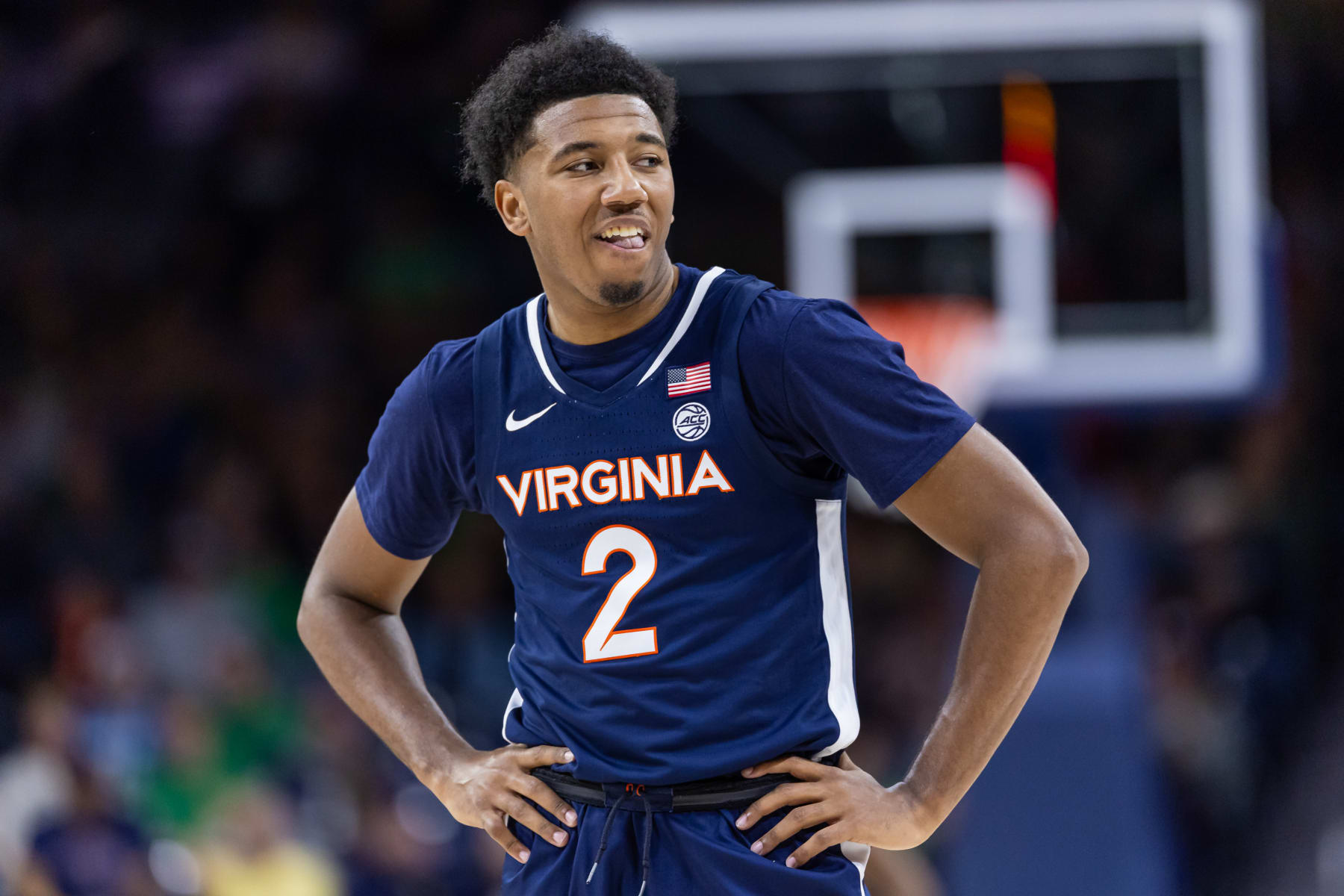
Resume: 11-5, NET: 63, RES: 68.0, QUAL: 58.0
Three Best Wins: Florida (in Charlotte), Texas A&M, Syracuse
Three Worst Losses: at Notre Dame, at NC State, at Wake Forest
Current Bracket Matrix Projection: 11th Team Out
The biggest issue with Virginia is that when it doesn't bother to show up, things get ugly.
Normally a team relatively immune to blowouts because of the stout defense and the snail-like tempo, Virginia's five losses were by a combined margin of 104 points. The Cavaliers also had a pair of way-too-close-for-comfort 56-54 victories over West Virginia and Northeastern—both of whom any tournament-bound team should be able to defeat without much difficulty.
Moreover, Virginia simply has not played well outside of John Paul Jones Arena.
They did eke out that three-point, neutral-site victory over Florida five days into the season, but even that one has a "Zyon Pullin wasn't playing yet" asterisk attached to it, as the Gators were without their veteran point guard who is averaging around 15 points and five assists per game.
The world-famous pack-line defense is still good, but nowhere near as elite/stingy as it used to be.
But the greater concern is that Virginia just doesn't have a dude who can go get a bucket, resulting in a lot of mediocre or downright poor offensive performances. Reece Beekman and Ryan Dunn are very good players, but they are not Malcolm Brogdon, Ty Jerome or Kyle Guy.
The Cavaliers do not belong in the field today, and remaining opportunities for quality wins are scarce. They have one game each against Clemson (road), Duke (road) and North Carolina (home) with only one other borderline Q1 game (at Virginia Tech) on the docket. And none of those will come until February, so they need to avoid bad losses for the next couple of weeks to get/keep a tournament pulse.
